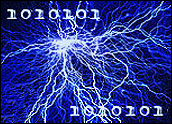
Massachusetts Institute of Technology has electrifying news, if you’ll pardon the pun — engineers at the institute have come up with a way to speed up the charging and discharging of lithium-ion batteries to a matter of seconds.
Lithium-ion, or Li-Ion, batteries are the ones you’ll see in your laptop, cell phone and other electronic devices, as well as electric cars.
They take a long time to charge, and Gerbrand Ceder, the Richard P. Simmons Professor of Materials Science and Engineering at the institute, found out why. Lithium ions can move quickly across the surface of lithium in batteries quickly but take longer to move through the material in the electrodes because they need to find tunnels running through it.
Ceder and graduate student Byoungwoo Kang sped things up by adding extra lithium and phosphorus to the electrode material, Lithium Iron Phosphate, according to the MIT Technology Review. Lithium Iron Phosphate is known in the trade as ‘LFP,’ and beefing it up gets the lithium ions to the tunnels more quickly.
Speeding Things Up
Ceder and Kang used their technology to develop a small battery that can be fully charged or discharged in 10 to 20 seconds instead of the six minutes it would normally take, MIT said. It predicts this could lead to smaller, lighter, rapidly recharging batteries for cell phones and other devices, and faster recharges for electric car batteries.
Well, yes. Except for a few minor details. For one, recharging electric cars more quickly will be limited by the amount of power available through the power grid, according to MIT’s own press release. In other words, the fast recharge will suck up huge amounts of electricity. Think about a brown-out.
As for cell phones and laptops, fuhggedaboutit. That much power blasting into a wee little consumer device would fry the thing.
It’s All About Size
Belgian firm Umicore, a materials technology firm that licensed the Ceder-Kang technology, thinks LFP is suited for bigger batteries with specific safety and power requirements such as power tools, load leveling systems and some automotive applications.
“The use of this product for consumer electronics applications is not anticipated because its main strong point is power,” Kurt Vandeputte, Umicore’s business line manager for rechargeable battery materials, told TechNewsWorld.
“This means it’s capable of charging and discharging faster than existing products. That is something you do not really need for electronics.”
Ceder and Kang were not available for comment by press time.
The MIT project was supported by the National Science Foundation and the Department of Energy’s Batteries for Advanced Transportation Program.





















































